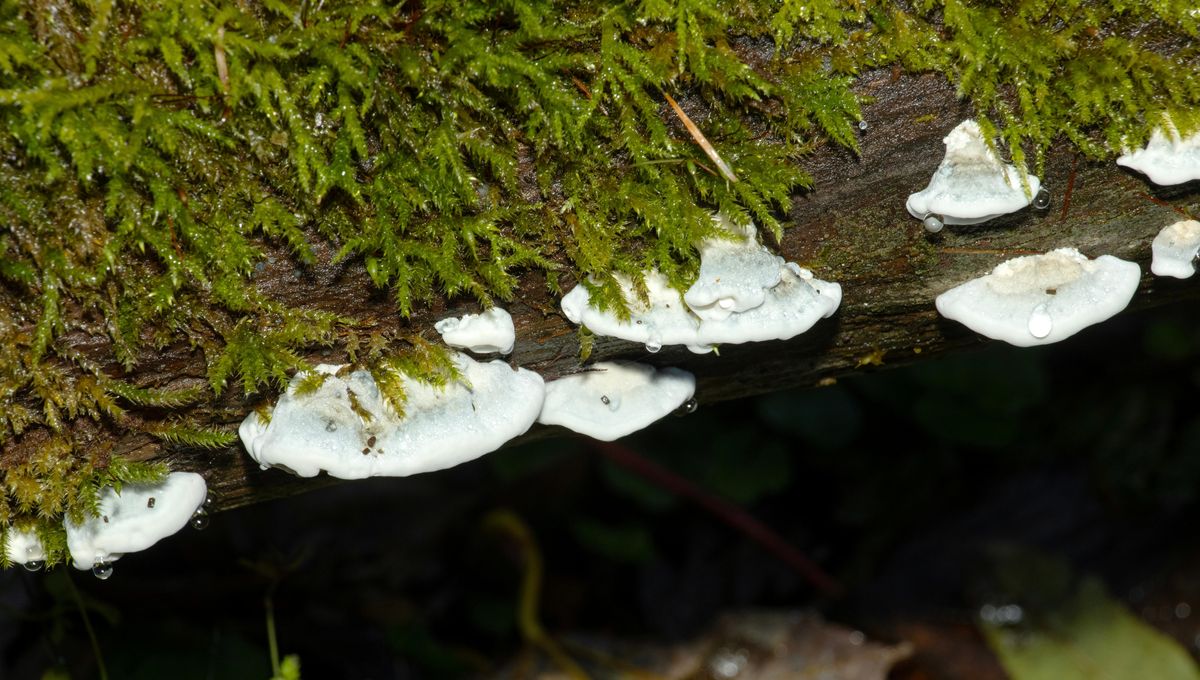
Scientists have discovered what could be one of the most bitter substances known to date. The potent chemical compound comes from a “bitter bracket” mushroom and has helped shine a light on how humans detect and react to such strong bitterness.
Researchers at the Leibniz Institute for Food Systems Biology at the Technical University of Munich in Freising and the Leibniz Institute of Plant Biochemistry in Halle (Saale) have isolated three new bitter compounds from Amaropostia stiptica, a common but typically well-hidden bracket mushroom that can be found in woodlands across Great Britain, Ireland, mainland Europe, and parts of Asia and North America.
During their research, the scientists investigated the effects these bitter compounds would have on human bitter taste receptors and, as a result, managed to identify what is potentially one of the most bitter substances discovered to date.
Generally speaking, the molecular world of bitterness has only been partially explored by scientists. At present, the BitterDB database, which holds information on bitter-tasting compounds – both natural and synthetic – contains over 2,400 bitter molecules. However, the vast majority of the bitter compounds within the database come from flowering plants or synthetic compounds. Those from animals, bacteria, or fungi (which are thought to produce some of the strongest bitter compounds in the world) are significantly underrepresented.
But why do we have bitter taste receptors anyway? It would be easy to assume that our ability to detect bitterness serves as a warning mechanism to stop us from eating potentially toxic substances – but we also know that bitter compounds are not always toxic or harmful. Those in bitter bracket mushrooms might be incredibly bitter, but they do not cause harm, while some extremely toxic substances – like those in death cap mushrooms – are not bitter at all.
The situation gets even more confusing when you factor in that our bodies have sensors for bitter substances in places other than our mouths. For instance, our stomachs, intestines, hearts, lungs, and even some blood cells contain such sensors, and yet we do not “taste” with any of them. So, what’s going on – and what does the bitter bracket mushroom have to do with it?
“Comprehensive data collections on bitter compounds and their receptors could help us to find answers to these open questions,” Maik Behrens, the group’s lead researcher from the Leibniz Institute in Freising, explained in a statement. “The more well-founded data we have on the various bitter compound classes, taste receptor types and variants, the better we can develop predictive models using systems biology methods to identify new bitter compounds and predict bitter taste receptor-mediated effects. This applies to both food constituents and endogenous substances that activate extraoral bitter taste receptors.”
Norbert Arnold, the lead researcher from the Institute in Halle (Saale), and his team isolated three previously unknown compounds from the bitter bracket mushroom and revealed their structures. Then, the researchers at Freising used cellular test systems to show that these compounds activate at least one of the 25 known types of human bitter taste receptors. One particular compound, known as oligoporin D, stimulates the bitter taste receptor type TAS2R46 – even at concentrations equivalent to dissolving a single gram of the compound in 106 bathtubs of water.
“Our results contribute to expanding our knowledge of the molecular diversity and mode of action of natural bitter compounds,” Behrens said. “In the long term, insights in this area could enable new applications in food and health research, for example in the development of sensorially appealing foods that positively influence digestion and satiety.”
The study is published in the Journal of Agricultural and Food Chemistry.
Source Link: One Of The Most Bitter Compounds Known To Humans Can Be Found In A Common Mushroom